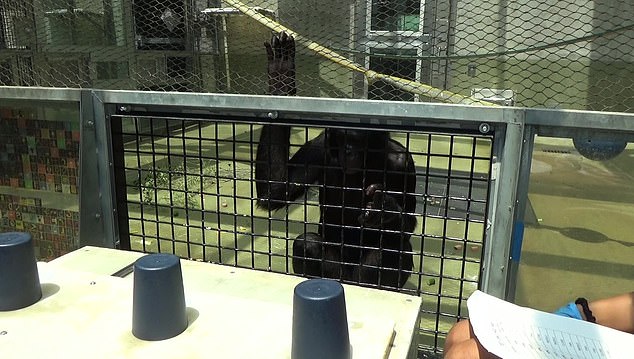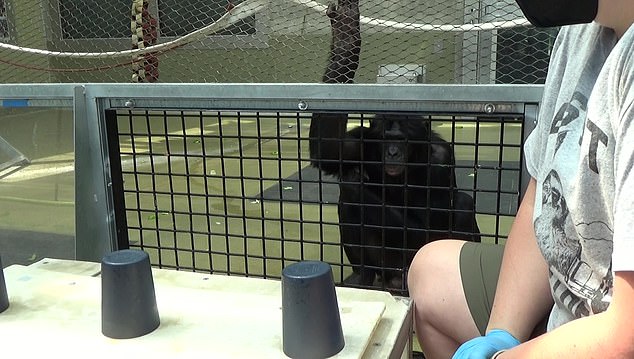Apes may possess intelligence far superior to what we give them credit for, and may even have an innate ability to psychically understand and possibly even influence the thoughts of others, similar to humans.
Understanding another person's knowledge or perspective is a complex skill that human individuals typically start to develop around the age of three.
Researchers have spent nearly five decades endeavoring to verify evidence that other creatures, encompassing chimps to ravens, possess this ability, yet numerous specialists have persisted in harboring doubts.
Researchers have collected compelling evidence that bonobos are indeed able to comprehend human thoughts and use this understanding to communicate with the intention of obtaining a desirable treat.
Collaborated with a researcher on using a grape, an apple chunk, a peanut, and some Cheerios in a study.
The food was placed under one of three cups by a second person and the researcher, upon finding it, transferred it to the bonobo sitting across from them.
However, the researcher wasn't always aware of the location of the treat due to a large cardboard obstruction in front of them.
The apes observed that the researcher was not aware of the cup under which the food was placed.


However, it requires a surprising level of cognitive understanding to comprehend that the researcher was unaware in his thoughts of the food's location.
It was clear the apes had understood what was going through his mind by the extra effort they made to assist him in finding the food when it was not in a visible location.
They were 29 percent more likely to point at the cup holding the food if the researcher did not know where it was, and they pointed at it approximately 1.5 seconds faster than when the researcher correctly identified its location.
Dr Chris Krupenye, a senior author of the study and assistant professor of psychological and brain sciences at Johns Hopkins University, stated: ‘The ability to detect gaps in each other's knowledge is the foundation of our most advanced social behaviors, and is crucial for cooperation, effective communication, and strategic teamwork.
'Because this so-called theory of mind is understood to support many of the abilities that distinguish humans from other species, such as teaching and language, many people believe it is not present in animals.
‘However, this work shows that humans and other apes have rich mental backgrounds in common-and implies that these capacities developed millions of years ago in their common ancestors.’

It had previously been thought that chimpanzees possess the ability to read the thoughts of others, owing to their tendency to make more alarm calls about a nearby snake to chimpanzees who have not yet observed it.
However, some experts questioned this discovery, suggesting that the chimpanzees might have made the loud calls out of fear, not to warn others.
The study demonstrated that apes are able to retain two distinct mental states concurrently - their awareness of which cup a food item was concealed and another person's unconsciousness of that fact - and can convey this information effectively.
The study was published in the Proceedings of the National Academy of Sciences journal.



